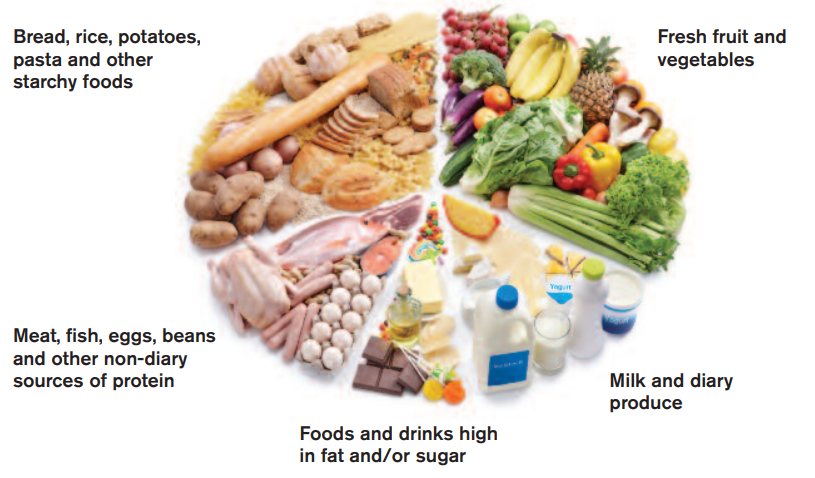13 January 2020 marks the “National Obesity Awareness Week” in the UK, in efforts to raise awareness on the “overweight issue” that severely impacts the lives of people and most importantly those of seafarers’, as it poses a barrier for seafarers during their duty and heavily impacts their health. Although leading a healthy lifestyle onboard may be difficult, it is achievable through 3 tips; eating healthy, exercising and always staying hydrated.
In efforts of tackling obesity and weight issues in the shipping industry, the UK P&I Club’s Crew Health team analysed data from 900+ crew medical examinations where multiple illnesses were highlighted. Their data showed that more than 200 crewmembers didn’t pass their pre-sea medical examination (PEME) due to a combination of serious illnesses in addition to obesity.
In the meantime, to help seafarers deal with overweight challenges, the Seafarers’ Health Information Programme (SHIP) had published its “Guidelines for overweight prevention onboard merchant ships” to inform, alert and assist those impacted from obesity and weight problems, highlighting that those who are overweight have a greater risk of dying prematurely from chronic health problems.
The BMI solution
Therefore, the Body Mass Index (MBI) helps seafarers gain a better understanding of their weight.
The BMI is a figure consisting of data commonly collected at medical examinations but can be impacted from the shape of the body frame and its muscle mass. Thus, it is not the best predictor of long-term risk from obesity associated conditions. The following limits are indicative:
- A BMI below 17,5 indicates a person is “underweight”
- A BMI between 17,5 and 24,9 indicates a person is of ‘’normal weight’’
- A BMI more than 25 indicates ‘’overweight‘’
- A BMI above 30 means a person is ‘’obese or pathologically overweight’’
Impacts on seafarers
Keeping in mind the importance of being healthy onboard, seafarers should be extra cautious concerning their health, their eating habits and their training, to ensure that they will lead a healthy lifestyle.
Obesity can become a chronic nature for seafarers
Obesity isn’t easy to deal with; Those suffering may have a hard time changing their eating habits and becoming more fit, meaning that they may struggle more. Also, American PEME has stated that the chronic nature of obesity is similar to additional chronic conditions, such as hypertension, chronic kidney disease, problematic lipid profiles relevant to poor eating habits, chronic liver conditions, and gall stones.
Seafarers may become permanently unfit for duty
It is obvious that obesity can impact seafarers’ work, affecting their ability to conduct arduous emergency tasks such as fire-fighting, evacuation from the vessel and recovering people from the water.
Barriers when working
Obese seafarers are more prone to injuries from falls and of acute illness and incapacity while at sea. Additionally, the possibility of falling is linked to the inability of seafarers fitting into protective clothing and lifesaving equipment, as the American PEME has found.
Exceeding the design standards for equipment used to work at heights and for use in life threatening situations, for instance emergency chutes and free fall lifeboats.
Diabetes
According to Gard’s Christina Tsouni and Alice Jackson Amundsen, diabetes, not always but often, is connected to obesity, which itself can cause insulin resistance and lead to high blood glucose levels. People with Type 2 diabetes can often initially manage their condition through exercise and diet. However, over time most people will require oral drugs and/or insulin.
Gard’s Christina Tsouni and Alice Jackson Amundsen highlight that
There is an increasing prevalence of Type 2 diabetes, which is associated with more sedentary lifestyles and a higher consumption of unhealthy foods, which lead to obesity.
3 tips on dealing with obesity onboard
Overall, there is a variety of options that can help seafarers deal with obesity.
#1 Leading a healthy diet

A healthy and balanced diet is always a plus when it comes to health issues. Consequently, the UK P&I Club recommends:
- Fruit: 5-10 portions of fruit and vegetables per day.
- Fat: A reduction in fat intake is encouraged. This can be achieved by changing cooking methods, such as swap frying for baking or steaming
- Salt: A lowering of salt levels can be achieved by not adding salt during food preparation, limiting the amount of salty, savory snacks and not putting salt on the table at mealtimes.
- Sugar: Sugar intake can be reduced by 10% by avoiding sugar sweetened drinks, snacks and sweets. Swap processed sugar for natural fruit sugars by eating fruit and raw vegetables.
#2 Exercise
Exercise along with a fit schedule plays a major role in the everyday life of a seafarer, making them physically and mentally stronger, while it brings massive mental benefits, improves digestion, and stabilizes blood sugar.
Crew members, given time, free space, and encouragement to exercise, will see the benefit of weight loss, but also a reduction in stress levels, improved sleep and a boost to their self-esteem.
#3 Improving hydration
Being hydrated onboard is another important step, not to be missed, keeping in mind that dehydration can have a negative impact on a seafarer’s health and can cause or worsen certain diseases.
However, hydration is not only about drinking water, but also about being fully informed of the food you eat, as eating water-rich foods is an effective way to increase your water intake, such as fruits and vegetables that have high water content.
Concluding, fighting obesity is a step to step procedure, it won’t happen over a night; Thus, small steps, such as the above, help crew members to achieve and preserve good health. This helps to reduce the likelihood of poor health, leading to a shortened seagoing career or medical emergency at sea.






























































